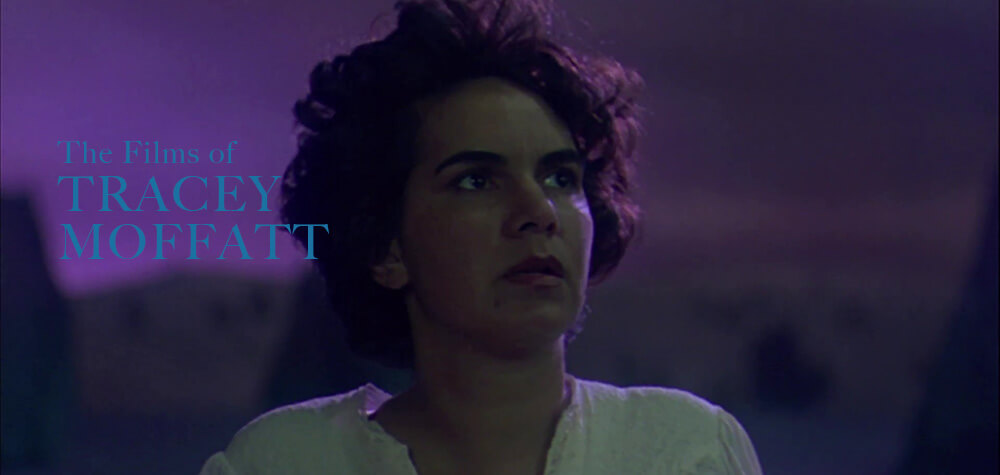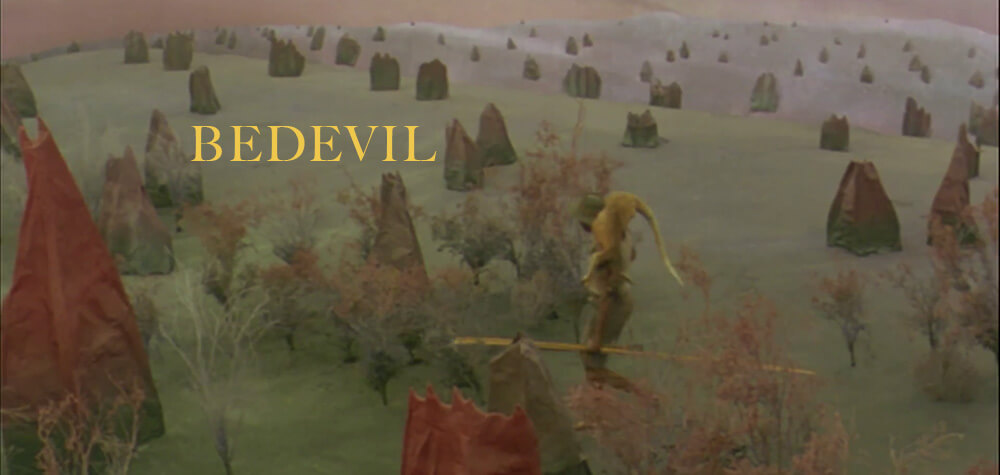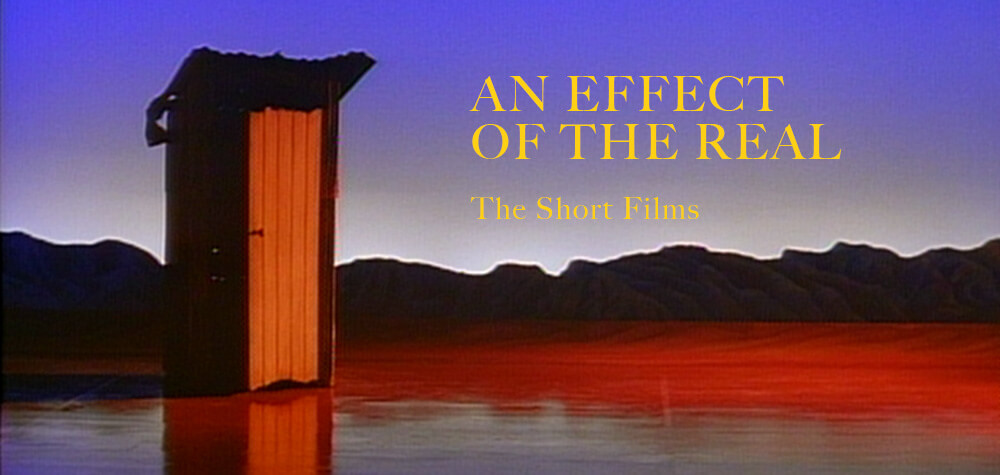
Tracey Moffatt may be best known in the art world as a photographer. But even her photographs have the precise staging, lighting, and narrative nuance of film stills, ambiguously illuminating troubled episodes of history and identity. When actually working in film, the effect is amplified further. Action unfolds in the isolated, artificial space of the photographic frame, where every element is perfected and fixed in place. Even when conveyed through the finely orchestrated swoop and pan of a sequence shot. Yet from these constructed scenes spring indelibly human subjects.
Daughter of an Aboriginal mother and white father, Moffatt grew up “between black relations and white relations” just as Aboriginal Australia was becoming politicized in the fight to reclaim its land rights. But disinterested in either the idealized or patronizing portrayals found in typical ethnographic cinema made about her community (and inevitably by outsiders), she sought more experimental approaches that could cut to the heart of the tales she told.
Programmed in collaboration with Women Make Movies.

beDEVIL
dir. Tracey Moffatt, 1993
90 mins. Australia.
In English.
FRIDAY, SEPTEMBER 10 – 10PM EST in-theater and at stream.spectacletheater.com
SATURDAY, SEPTEMBER 18 – 10PM EST in-theater and at stream.spectacletheater.com
SUNDAY, SEPTEMBER 19 – 5PM EST in-theater and at stream.spectacletheater.com
THURSDAY, SEPTEMBER 23 – 7:30PM EST in-theater and at stream.spectacletheater.com
Like a playful, lavishly-composed Australian folk horror triptych, beDEVIL tells three ghost stories unfolding along cultural fault lines in far-flung corners of the outback and offshore islands. In Moffatt’s Australia, though, it is modernity and not antiquity that threatens: her specters are trains, UFOs, and American soldiers. Through lavish stylization and kinetic editing (and embracing all artifice, even bits of digital manipulation), interviews are transformed into performance and memory into heightened drama, as the film blurs the lines not only between Aboriginal and immigrant (or colonial) worlds but also between modes of film and narrative. The resulting tableaux, fanciful and deeply saturated, will haunt not only for their brushes with the uncanny but their many-layered approach to the deeper questions of post-colonial life. At the time of its Cannes debut, beDEVIL was the first feature directed by an Aboriginal woman.

AN EFFECT OF THE REAL: THE SHORT FILMS
dir. Tracey Moffat, 1987-1999
74 mins. Australia.
In English.
SUNDAY, SEPTEMBER 12 – 5PM EST in-theater and at stream.spectacletheater.com
THURSDAY, SEPTEMBER 16 – 10PM EST in-theater and at stream.spectacletheater.com
FRIDAY. SEPTEMBER 17 – 10PM EST in-theater and at stream.spectacletheater.com
THURSDAY, SEPTEMBER 23 – 10PM EST in-theater and at stream.spectacletheater.com
NICE COLORED GIRLS
dir. Tracey Moffatt, 1987
16 mins. Australia.
Colonialist ethnographic narratives intertwine with a finely-crafted account of modern aboriginal women out on the town. To finance the night, they pick up a “captain” (old and white, of course) to exploit in turn, closing a historical cycle. The satisfaction of seeing these systems inverted is matched only by the pop verve of Moffatt’s filmmaking.
NIGHT CRIES: A RURAL TRAGEDY
dir. Tracey Moffatt, 1990
20 mins. Australia.
In an early expression of much of the stylization she’d later put to use in beDEVIL — matte paintings, stagey sets, otherworldly intercut memories — Moffatt explores a stifling interracial family relationship in the middle of nowhere. An aging black daughter cares for her ancient white mother alone in the arid outback, dreaming of freedom, but what else does she have? Meanwhile, popular Aboriginal crooner Jimmy Little haunts the margins of the story.
HEAVEN
dir. Tracey Moffatt, 1997
28 mins. Australia.
Flipping ingrained cinema codes, Moffatt exploits the unmediated POV possibilities of digital video in female gaze. No less intrusive than its male counterpart, Moffatt’s camera eye voyeuristically observes beefcake surfers changing clothes in beach parking lots or moves in for direct interrogation. But though her subjects speak to her, amused or irritated or perplexed, we never hear a word — the camera is too distracted, dropping regularly from chiseled pecs to bulging speedos.
ARTIST
dirs. Tracey Moffatt & Gary Hillberg, 1999
10 mins. Australia.
The plight of the artist as a viewed through cinema history: blocked inspiration, self-doubt, an uncomprehending public. Sometimes the only catharsis is to bring it all down. A transition point from Moffatt’s earlier films to later collage work.
